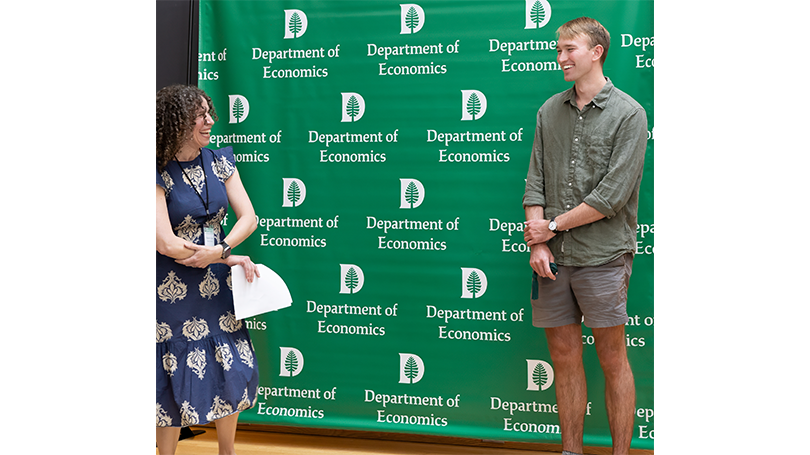
Paul Cornell (High Honors, Lewis H. Haney Prize, Nelson A. Rockefeller Prize) with Liz Cascio
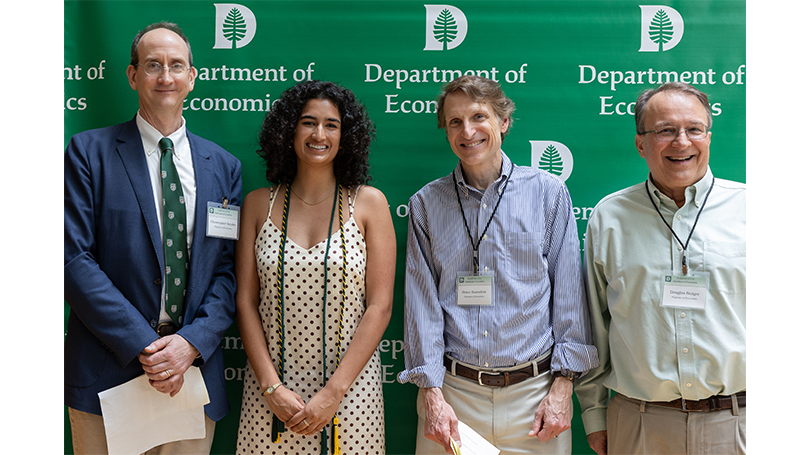
Ranesa Khanna (High Honors and Nelson A. Rockefeller Prize) with Chris Snyder, Bruce Sacerdote, and Doug Staiger
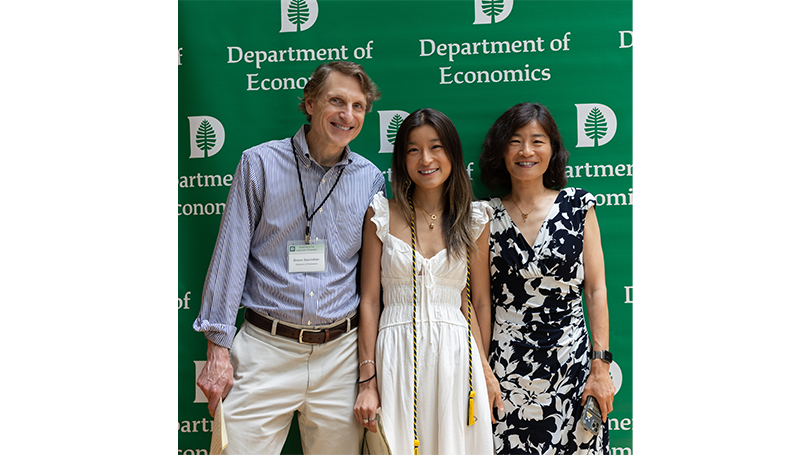
Keren Luo (High Honors and Nelson A. Rockefeller Prize) with Bruce Sacerdote and family
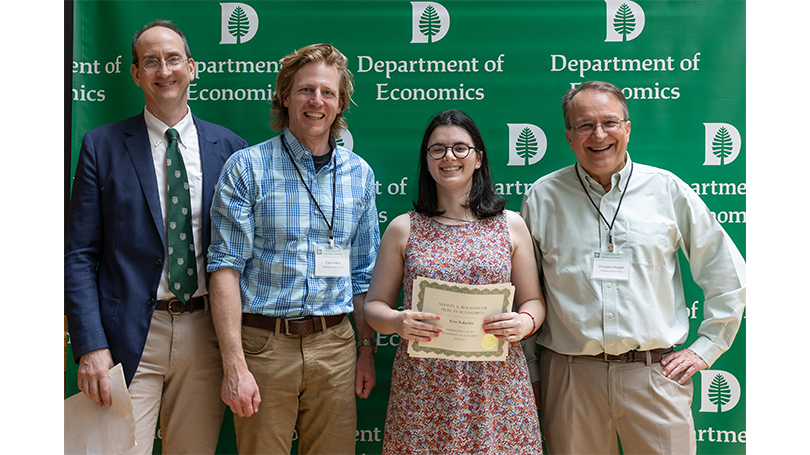
Keso Kakachia (High Honors and Nelson A. Rockefeller Prize) with Chris Snyder, Treb Allen and Doug Staiger
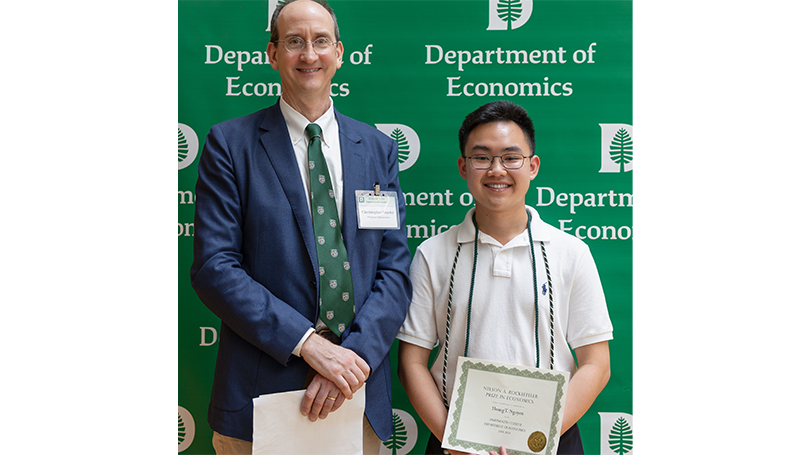
Hoang Nguyen (High Honors and Nelson A. Rockefeller Prize) with Chris Snyder
- About
- Undergraduate
- Research
- Inclusivity
- News & Events
- People
Back to Top Nav
Back to Top Nav
Back to Top Nav
Back to Top Nav